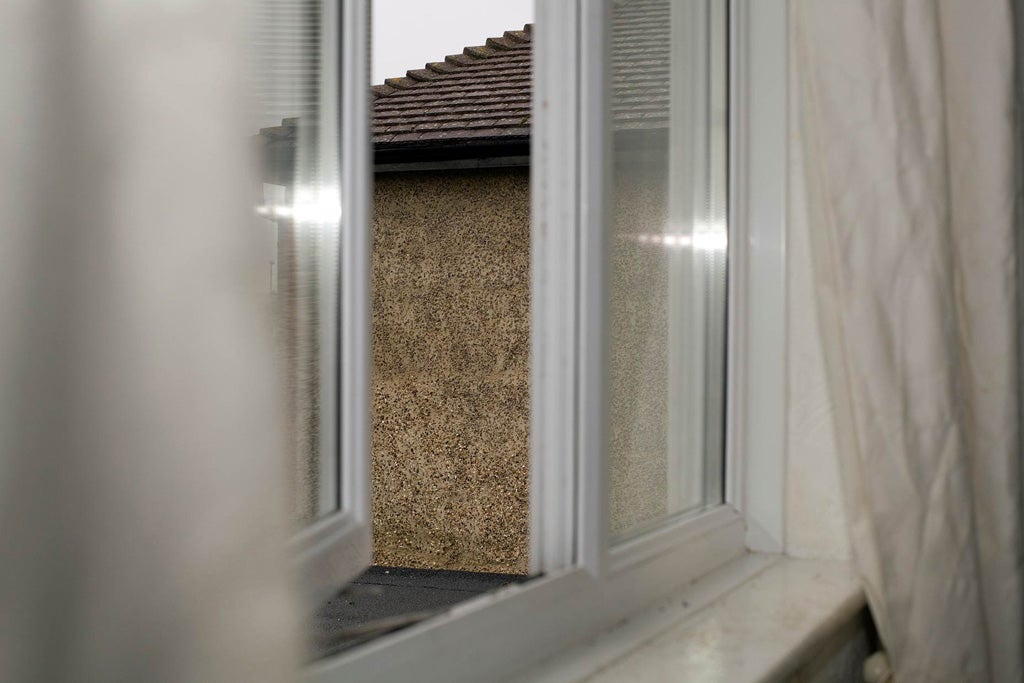Artist highlights plight of control order detainees

Your support helps us to tell the story
From reproductive rights to climate change to Big Tech, The Independent is on the ground when the story is developing. Whether it's investigating the financials of Elon Musk's pro-Trump PAC or producing our latest documentary, 'The A Word', which shines a light on the American women fighting for reproductive rights, we know how important it is to parse out the facts from the messaging.
At such a critical moment in US history, we need reporters on the ground. Your donation allows us to keep sending journalists to speak to both sides of the story.
The Independent is trusted by Americans across the entire political spectrum. And unlike many other quality news outlets, we choose not to lock Americans out of our reporting and analysis with paywalls. We believe quality journalism should be available to everyone, paid for by those who can afford it.
Your support makes all the difference.The first artist to gain access to a terrorist suspect held under a Home Office control order said his photos highlighted the issue of “semi-detention without due criminal trial” adding the rise of such orders marked an “important moment” in British history.
The Brighton Photo Biennial opened on Saturday and included eerie photographs by Edmund Clark of the house of someone in the UK held over “suspicion of involvement with terrorist activity”.
Mr Clark was shortlisted for the Prix Pictet Photography Prize, although missed out this evening to French photographer Luc Delahaye.
He said: “The idea that this shift in our legal and moral expectations – detention without trial – is very significant.” He added the photos “use the experience of the individual in a space to try and touch upon the political, social and historical issues”.
No people are shown in his photographs. “They are empty, because it’s a control order house I’m not allowed to show the man. It would be contempt of court if the photographs identify him or the location.”
The setting is an “archetypal semi-detached, unidentifiable house in a faceless suburb” and shows the “mundanity and ordinariness of it all. People identify with the space, but it also highlights the threat from within.”
Mr Clark stayed with the man under the control order, and said his starting point was “not whether I thought he was guilty, other people can make their minds up about that.” He said that he related to the suspect on a human level and was interested in what living under those conditions was like.
In the wake of the London bombings, “this house represents Britain, and the kind of house that the real threat from within comes from,” Mr Clark said. He said the photos would make the viewers “consider the process the state is exercising over this man without due criminal trial process”.
The exhibition followed on from his work on Guantanamo Bay. The resulting book Guantanamo: If the Light Goes Out, involved pictures of the homes of former detainees in the UK and the Middle East as well as the prison camps on the base.
“I have an interest in issues of law and order, consignment and control. Representation in relation on the war on terror,” he said it was not supposed to be photo journalism.
The photographer managed to gain access to the man facing the control order through a sympathetic lawyer. The particular order meant he did not need permission from the home office for the photographs, but he did have to show them everything he shot and was not allowed to let the man handle his equipment.
The Home Office gave his material the all clear three weeks ago, just in time for the Brighton Photo Biennial. Other exhibitions at the event include Another Space: Political Squatting in Brighton.
Join our commenting forum
Join thought-provoking conversations, follow other Independent readers and see their replies
Comments